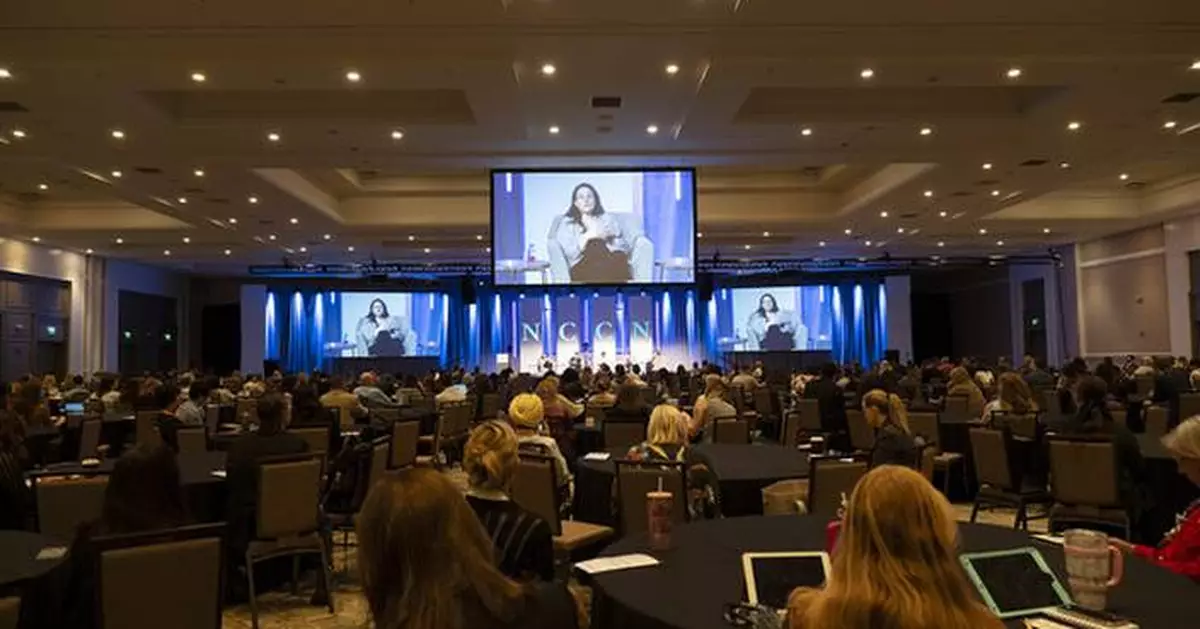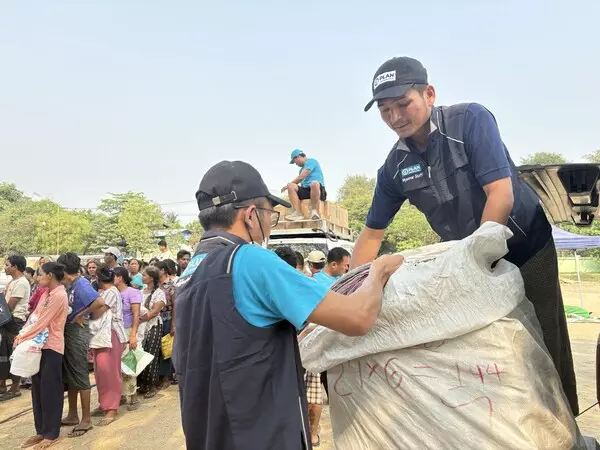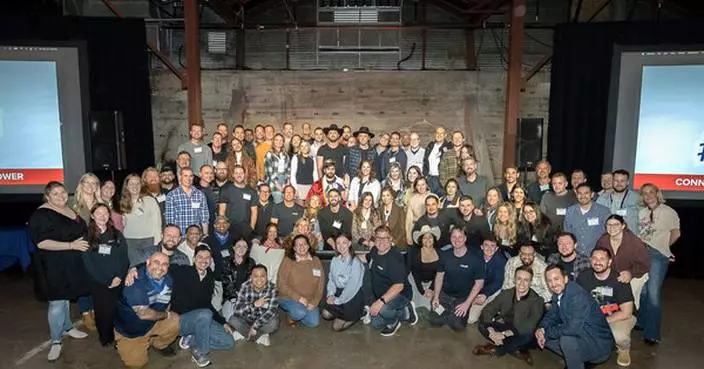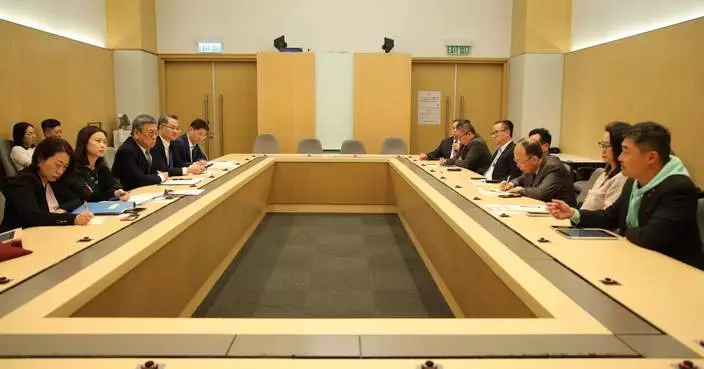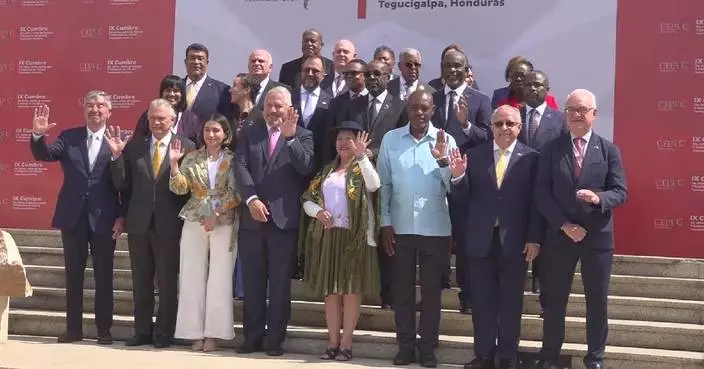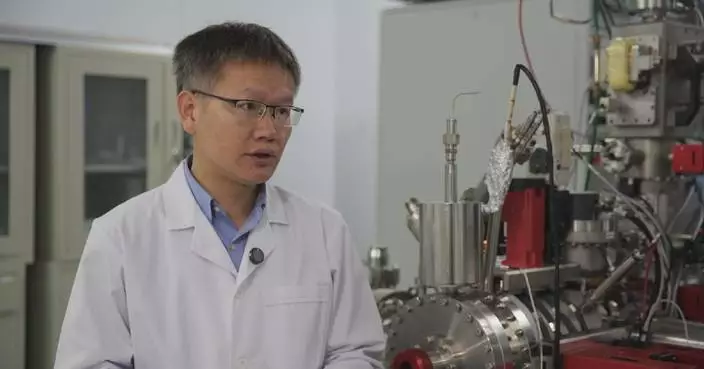The National Comprehensive Cancer Network celebrated its 30th anniversary with a series of presentations on cancer care practice changes—in both treatment and administration—plus new research, and other changes for the oncology workforce and the patients they serve.
ORLANDO, Fla., April 2, 2025 /PRNewswire/ -- The National Comprehensive Cancer Network® (NCCN®)—an alliance of leading cancer centers—celebrated 30 years of helping people with cancer to live better lives during the NCCN 2025 Annual Conference, March 28-30 in Orlando, Florida. The yearly event brings together leading minds and subject matter experts in front of a multidisciplinary audience to share the latest recommendations for cancer treatment and prevention.
"We are proud to honor our founders' vision of sharing evidence-based, expert consensus-driven recommendations through clinical practice guidelines to improve cancer care," said Crystal S. Denlinger, MD, Chief Executive Officer, NCCN. "Over the years our organization has responded to a rapidly accelerating pace of discovery with record numbers of updates to our guidelines. Our work spans the spectrum from prevention and risk reduction through post-treatment survivorship and palliation, focused on ensuring that innovations are accessible for all. That is why we share strategies for ensuring delivery of high-quality, high-value, person-centered cancer care, whether it be standards of care or cutting-edge cancer research. We re-assert our commitment to meet every patient where they are and to treat the whole person. One size does not fit all in oncology—but the NCCN Guidelines and related resources provide everyone with tools to match the right treatment with the right person at the right time in order to get the best possible outcome."
More than 1,500 medical professionals across all disciplines on oncology took part in the hybrid meeting in Orlando and online. There were more than 200 posters featuring original, high-impact research—curated by the NCCN Oncology Research Program (ORP) and now available as abstracts at JNCCN.org, the online home of JNCCN—Journal of the National Comprehensive Cancer Network. Fishbowl discussions provided opportunities for peer-to-peer brainstorming about current concerns in the oncology field, including staff burnout, diversity in clinical trial participation, and the implications of Artificial Intelligence (AI) in cancer care.
AI and Cancer Care
Tools and policies for AI were also the subject of one of the conference's two main plenary sessions. Speakers highlighted ways that digital tools have potential to transform health care delivery for the better. They pointed out the ability of large language model (LLM) tools to track the accelerating pace of new knowledge at a rate the human brain cannot.
However, panelists also noted that AI will never be able to convey the sense that another human being cares, which has therapeutic benefits. They stated that AI-informed care should only occur when it is beneficial and transparent for everyone involved, with a focus on four major considerations:
"As AI becomes increasingly more powerful, it is critical that it maintains human values and has human oversight," commented Dennis Chornenky, MBA, MPH, MS, CEO of Domelabs AI and former Chief AI Advisor at UC Davis Health.
Mental Health, Smoking Cessation, Stigma, and Cancer Care
A second plenary session dealt with the topic of mental health care for people with cancer. Speakers noted that those with the greatest needs for assistance tend to be the least likely to ask for it. They also pointed out that people whose social-emotional needs are addressed adhere better to treatment, are more likely to complete the full course of treatment, tend to have lower mortality rates, and have a higher likelihood of returning to work. There was also discussion regarding the mental health needs of caregivers. Panelists concluded that is it crucial to routinely ask all patients about their emotional wellbeing – not just at the onset of treatment but also during any transitions in care.
Additional sessions, such as one on navigating various stigmas and another on smoking cessation added to the conversation on how to ask patients the right questions and do so in a way that will build trust between them and their providers.
The smoking cessation panel called attention to the fact that only 15% of patients with cancer reported being counseled about quitting smoking, despite the fact that it dramatically improves outcomes, reduces long term effects, and can lower the risk for recurrence. Studies found that when providers did engage with their patients about smoking, they had double the rate of successfully breaking the addiction.
"Treating patients with cancer is clearly hard. They have a big mountain to climb. But we cannot avoid asking about smoking. It's going to impact their survival. It's going to impact the efficacy of treatment," said Mary E. Reid, MSPH, PhD, Chief of Cancer Screening, Survivorship and Mentorship at Roswell Park Comprehensive Cancer Center, a Member of the NCCN Guidelines Panel for Lung Cancer Screening.
"Keep it short but make it happen," agreed James M. Davis, MD, of the Duke Cancer Institute, Director for Duke Center for Smoking Cessation, and Member of the NCCN Guidelines Panel for Smoking Cessation, who noted that much more advice for both patients and providers across the continuum of care can be found in recently-published NCCN Guidelines for Patients®: Quitting Smoking—available for free at NCCN.org/patientguidelines through funding from the NCCN Foundation®.
Clinical and Administrative Updates
The conference featured numerous practice-changing clinical updates from the latest NCCN Clinical Practice Guidelines in Oncology (NCCN Guidelines®) for treating various cancers, including colorectal, lung, prostate, multiple myeloma, mesothelioma, gastrointestinal, gynecologic, and head and neck cancers. Updates on hereditary and genetic risk across numerous cancer types were also presented. Speakers noted the importance of letting people with cancer know that there is an expectation of change over time; care teams are learning with them and will always do the best they can with the information they have at the time.
The conference provided audience members from various roles across the oncology care team with practical information for improving all aspects of cancer care delivery—particularly in the non-academic setting. Additional sessions focused on topics like oncology nursing, oncologic urgent care and dentistry, APPs in the outpatient setting, navigation models, and telehealth.
Save The Dates
The NCCN Annual Conference will return to the Caribe Royale Orlando on March 27 – March 29, 2026.
Before then, NCCN has several additional opportunities for Continuing Education and Policy learning, including:
Visit NCCN.org for more information on events and resources that define and advance quality, effective, equitable, and accessible cancer care and prevention so all people can live better lives.
About the National Comprehensive Cancer Network
The National Comprehensive Cancer Network® (NCCN®) is marking 30 years as a not-for-profit alliance of leading cancer centers devoted to patient care, research, and education. NCCN is dedicated to defining and advancing quality, effective, equitable, and accessible cancer care and prevention so all people can live better lives. The NCCN Clinical Practice Guidelines in Oncology (NCCN Guidelines®) provide transparent, evidence-based, expert consensus-driven recommendations for cancer treatment, prevention, and supportive services; they are the recognized standard for clinical direction and policy in cancer management and the most thorough and frequently-updated clinical practice guidelines available in any area of medicine. The NCCN Guidelines for Patients® provide expert cancer treatment information to inform and empower patients and caregivers, through support from the NCCN Foundation®. NCCN also advances continuing education, global initiatives, policy, and research collaboration and publication in oncology. Visit NCCN.org for more information.
Media Contact:
Rachel Darwin
267-622-6624
darwin@nccn.org
** The press release content is from PR Newswire. Bastille Post is not involved in its creation. **
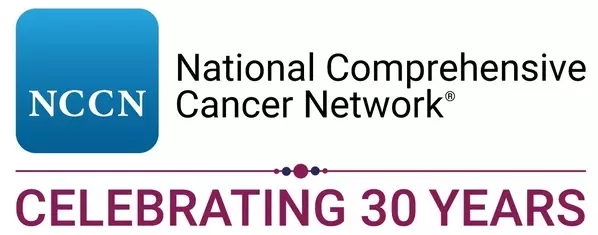
NCCN 2025 Annual Conference Illustrates the Critical Impact of Cancer Research on Improving Lives
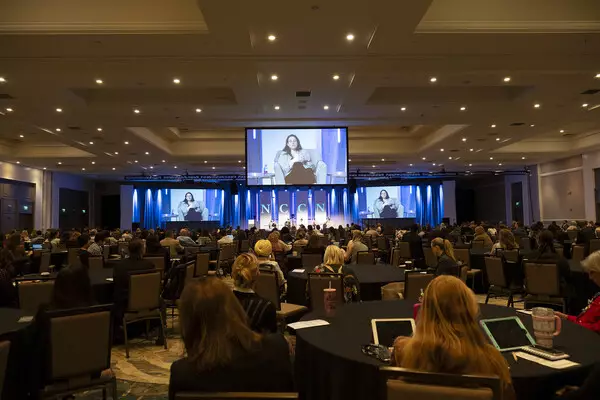
NCCN 2025 Annual Conference Illustrates the Critical Impact of Cancer Research on Improving Lives


